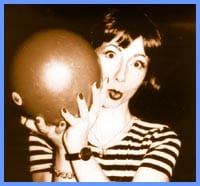“The winning ticket is red…” I looked at the red ticket in my hand “…number 173280.”
I started merrily towards the announcer to claim my $257 prize, but was stopped by a teammate who, oddly enough, handed me a bowling ball. Apparently, to win this particular 50/50 draw, I would have to bowl a strike – in front of everyone.
People were very supportive about the whole thing, using words like “almost” and “so close,” mixed with consoling pats on the back and genuine statements about what a shame it was that I hadn’t won, or couldn’t bowl. Something like that.
It was my first night bowling with the Toronto Historical Bowling Society (THBS), which, along with the Judy Garland Memorial Bowling League, serves a queer bowling community of about 200 members. Both are non-competitive 10-pin community organizations, emphasizing inclusion.
THBS is currently headed by Bernadette O’Toole, its first straight female president, while Judy’s Brian Martin is thinking of inviting family members to join in the fun. The majority of bowlers in both leagues are in the 30 to 50 age range, but following the early time-slots of league play is Cosmic Bowling, popular with the younger set. Many league players stick around for it.
The glow-in-the-dark balls, black lights and dance music of Cosmic Bowling might convince some to take the glowstix and water bottles out of their hands and try latching onto a “glowing Easter egg” instead.
To some degree, the gay bowling community is expanding, but factors such as distance and atmosphere tend to make people wary. People in both leagues remark that while their respective bowling alleys are far removed from downtown, neither has experienced much homophobia from staff or other bowlers.
League play has its advantages. With such a large organization comes power and ability to transport a downtown mentality into the suburbs. Martin and O’Toole say that the leagues are recognized as valuable clients by their bowling alleys, and any complaints are dealt with quickly. Additionally, they generally get their choice of staff.
Overall, the members “don’t get a sense of animosity from the public bowlers…. People don’t care, some of them like the shock,” says Martin.
Shock could mean a variety of things, including, Martin admits, “Halloween, our Christmas Hat Contest… and Camay, drag nicknames [such as Dolly Dilemma].” The only problems with using nicknames is that it makes it “a bit harder to get to know people.”
Such shocking appearances and behaviors help both organizations raise a considerable amount of money for community causes such as the Toronto People With AIDS Foundation, the Lesbian, Gay, Bi Youth Line and the Lesbian And Gay Community Appeal.
At its foundation, gay bowling is not a forum for politics or issues, but rather a friendly and accepting environment for anyone who wants to play. THBS social director Angelo Montera says that queer bowling is “not to show that we’re gay, it’s to have fun with our friends.”

 Why you can trust Xtra
Why you can trust Xtra


